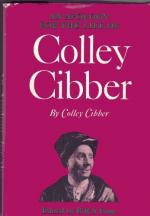|
This section contains 6,097 words (approx. 21 pages at 300 words per page) |

|
SOURCE: “A Few Kind Words for the Fop,” in SEL, Vol. 22, No. 3, Summer 1982, pp. 413-28.
In this essay, Staves examines the theatrical tradition of foppery and the changes it underwent throughout the eighteenth century, paying particular attention to Cibber and David Garrick. Staves demonstrates a softening attitude toward the fop character, citing Cibber's Love Makes a Man as an important example of this trend.
Literary critics have often taken a lugubrious tone toward the fop. Fops, we are told, are legitimate objects of ridicule because vain, selfish, narcissistic, and indifferent to the welfare of others. Writing about Sparkish in The Country Wife Virginia Ogden Birdsall comments, “Sparkish eventually reveals himself before Alithea for the unfeeling, mercenary fop that he is.” Toward the end of the closing act he reveals “all the nastiness of injured vanity.”1 Norman Holland in The First Modern Comedies repeatedly calls attention to fops as...
|
This section contains 6,097 words (approx. 21 pages at 300 words per page) |

|


